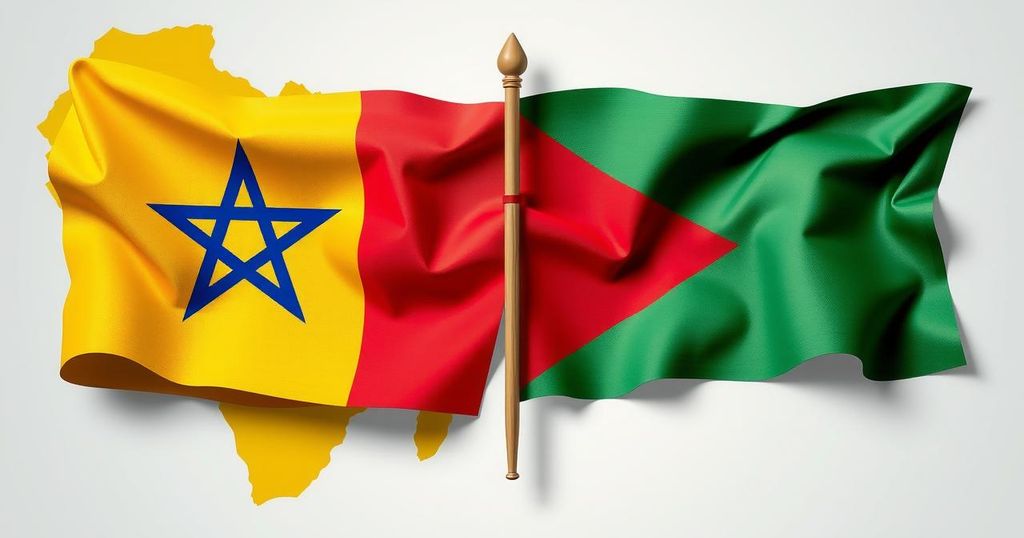The Ankara Declaration: Navigating Peace and Prospects in the Horn of Africa
The Ankara Declaration, announced on December 11, 2024, by Turkey’s President Erdogan, signifies a critical agreement between Somalia and Ethiopia aimed at fostering peace and cooperation. While it marks a departure from potential conflict, concerns remain regarding historical territorial disputes, sincerity in the negotiations, and mutual trust. The upcoming talks scheduled for February 2025 will be crucial in establishing a framework for long-term collaboration and addressing unresolved issues.
On December 11, 2024, the Horn of Africa entered a significant phase as the Ankara Declaration was announced by President Recep Tayyip Erdogan of Turkey, marking a critical agreement between Somalia and Ethiopia. Both nations signaled a move away from potential conflict, with President Hassan Sheikh Mahmoud representing Somalia and Prime Minister Abiye Ahmed Ali advocating for Ethiopia. Though this accord appears to chart a pathway towards peace, doubts remain among analysts regarding the sincerity of its underlying motivations.
Concerns from the Somali perspective revolve around historical grievances with Ethiopia, perceived as an aggressor illegally claiming Somali territories. Many believe that honoring such an agreement undermines Somali sovereignty and territorial rights, as discussions failed to adequately address the existing border disputes. Additionally, the pressure from Turkey to secure a favorable agreement raises questions about the true intentions of both leaders, pushing for terms that may not fully represent the interests of their respective nations.
Moreover, Prime Minister Abiye is accused of compromising Ethiopia’s long-standing ambitions of accessing the sea, a point of contention given the sensitive nature of past relationships. The urgency of the planned negotiations set to commence in February 2025 suggests unrealistic expectations, given the complex nature of maritime access and trade corridor management.
Emotionally charged responses from various factions within Somalia suggest a lack of trust in Ethiopia’s intentions. The issue of Ethiopia’s ambitions to establish a naval presence further complicates the agreement, bringing doubts regarding its implications for Somali territorial waters. Emphasizing mutual responsibility for infrastructural management and safety along shared logistical routes must be an essential component of any new accords, ensuring that sovereignty is respected.
Overall, while the Ankara Declaration seeks to establish improved relations and economic integration in the Horn of Africa, it also highlights the need for careful negotiation, understanding historical grievances, and creating frameworks that promote long-term stability and cooperation. Both nations possess profound potential for development, and peaceful coexistence remains a unifying goal for their populations.
The resolution of existing disputes and careful management of maritime and infrastructural issues will be vital to ensuring that mutual interests are safeguarded, promoting a future characterized by stability and prosperity for both countries in this strategically significant region.
The Horn of Africa has historically experienced tensions between neighboring countries, particularly Somalia and Ethiopia. The region has faced challenges related to territorial disputes, historical grievances, and the quest for economic integration. As Ethiopia remains landlocked, its pursuit of maritime access through Somalia has been a contentious issue. The Ankara Declaration serves as a pivotal moment aimed at improving bilateral relations and fostering regional stability amidst previous conflicts over territory and maritime rights.
In summary, the Ankara Declaration presents a cautious but hopeful avenue towards enhanced relations between Somalia and Ethiopia. While the agreement could facilitate essential trade connections and future negotiations, it necessitates a careful approach to address historical grievances and sovereignty issues. Building trust and creating sustainable frameworks for collaboration will be pivotal in securing a stable future for both nations, potentially leading to broader regional cooperation and prosperity.
Original Source: www.eurasiareview.com




Post Comment